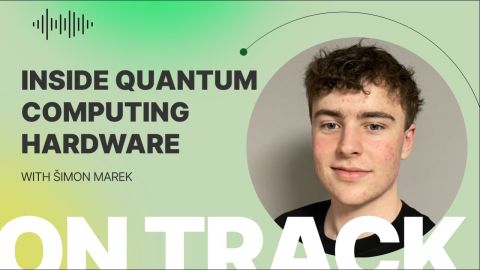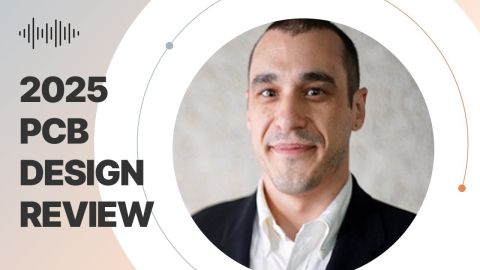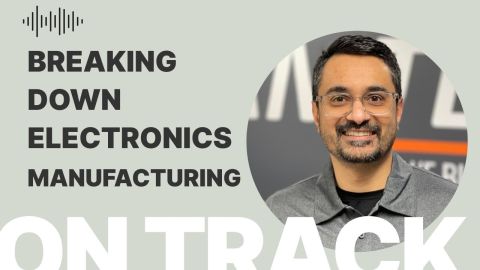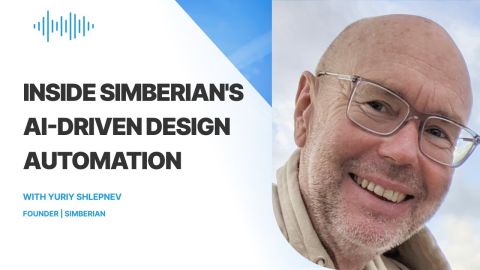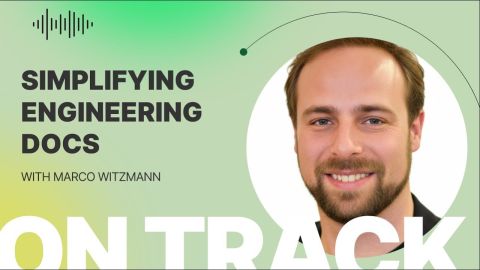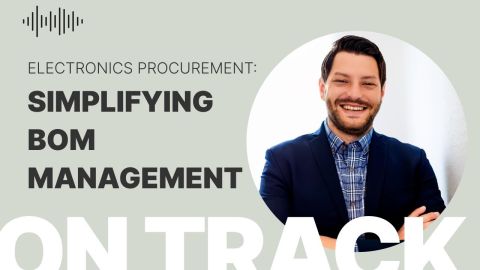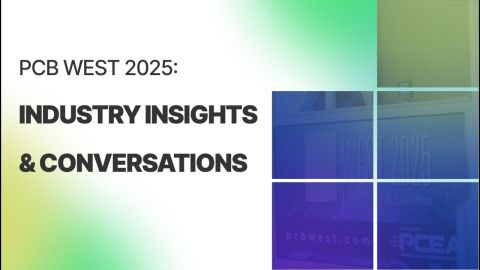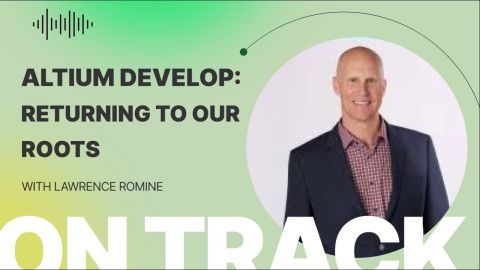The NEXAR Ecosystem

I am very excited to have Lawrence Romine, Altium’s Vice president of Marketing, to discuss the exciting future of PCB Design. In this episode, Lawrence will share Altium’s mission in creating an ecosystem that helps PCB designers and engineers be the best they can be and give them access to collaboration and sharing tools.
Listen to the Podcast:
Download this episode (right click and save)
Watch the video:
Show Highlights:
- What makes Altium designer a cutting-edge PCB designer software
- Design challenges and solutions, saving PCB designers 70-90 percent of potential problems
- Design with your manufacturer, addressing extinct manufacturing methods,
- Bringing the primary and secondary stakeholders in the PCB design Industry together through the cloud
- Building a solution that allows anybody with a PCB design background to design
- The benefit of Partnership vs. Acquiring
- For the Designers - accessibility to tools and capabilities where users could select what best fit their needs
- For the partners - allows them to access Altium's user base and make them aware of the design solutions that they would not have known existed
- More about Nexar, users will have access to:
- Frontend engineering tools
- Simulation tools
- Data management features
- Supply chain intelligence
- IHS Markit data
- A brief overview of Lawrence career background and experience before Altium
- NEXAR embed features
Links and Resources:
- Previous Podcast Episode: What is NEXAR?
- NEXAR website
- AltiumLive 2022 Connect: Now open for registration
- Connect with Zach Peterson on LinkedIn
- Connect with Lawrence Romine on Linkedin
- Watch Zach’s latest Altium Academy courses on Youtube
- Read Zach’s articles on Altium’s resource hub
Full OnTrack Podcast Library
Altium Website
Download your Altium Designer Free Trial
Learn More about Altium enterprise solutions
Altium 365: Where the World Designs Electronics
Transcription:
Zach Peterson:
Hi everybody. Thank you for joining the Altium OnTrack Podcast. I am Zacharia Peterson filling in for Judy Warner while she's out planning the Altium live 2022 event for this year. I'm very happy to be speaking with Lawrence Romine, Altium's vice president for marketing, and it should be a very interesting conversation. We'll be talking about the ecosystem that Altium is building to help designers and engineers be the best that they can be and give them access to collaboration and sharing tools. So let's go ahead and get started.
Podcast Intro (Judy Warner VO):
Welcome to Altium's OnTrack Podcast, where we talk to leaders about PCB design, tackling subjects ranging from schematic capture all the way to the manufacturing floor. I'm your host, Judy Warner. Please listen in every week and subscribe on iTunes, Stitcher, and all your favorite podcast apps, and be sure to check out the show notes altium.com/podcast, where you can find great resources and multiple ways to connect with us on social media.
Zach Peterson:
Lawrence, thank you so much for being with us today. I'm definitely excited to talk to you one on one in this podcast and I'll do my best, because I know I'm filling some big shoes with the Judy being occupied and at the moment planning Altium Live.
Lawrence Romine:
No, look Zach, I appreciate it very much. We appreciate all the work you've done for us. I mean, your videos are extremely popular online and I'm happy to do it, obviously.
Zach Peterson:
Well, hopefully this gets the Zach boost because we do have a lot of cool stuff to talk about out that I think a lot of designers will find really interesting. One of the things that's been going on with Altium and Altium's development track is building out an ecosystem of partners to give designers access to more tools, more utilities that they can use, whether it's inside, or outside of Altium Designer. I think that's really cool. And one of the things that I think is really interesting about all this is it's kind of tracking with what the rest of the software industry does. Do you feel that Altium is a little late on this or is this the right time? What are your thoughts around this? And what's the context around all of this?
Lawrence Romine:
Well, it's an interesting question actually, Zach, I wasn't prepared to answer that. Do we think that we're late? It's interesting in that... It's funny, I'll tell maybe a story. And it's an Altium live story, which is so all the technologies that folks like you work on in our customer base work on are what I would call Vanguard technologies. Right? We've got folks that are on the cutting edge of electric vehicle manufacturing and design. We've got folks that are on the leading edge of commercial space exploration. We have people that are in the government space exploration business, and not mentioning names, but that's pretty straightforward. These are cutting edge things, and things that probably, I assume, you grew up sort of dreaming about as a kid, hence you're now an engineer. But interesting our industry seems to not sort of be that Vanguard in many cases at Altium Live, I've seen a gentleman, I won't mention his name but, responsible for the manufacturer of products that are in the pockets of a lot of our listeners today.
And that guy pulled out a flip phone and this was not 10 years ago. This was two years ago. At Altium, I pulled out a flip phone, couldn't use the app that we had for Altium Live. So, no, I don't think that we're late. I do think that we have some opportunities that I would've as a marketing person, as a salesperson, really, at heart, like to have had previously, when we talk about some of the simulation stuff, analysis capabilities that our customers have been asking for. But as far as our ecosystem proposition, which I'm assuming we'll talk a little bit more about, look, I think is cutting edge and I don't see anybody else really doing it. And certainly not the way that we're putting it together. And that's a hallmark of Altium. Look, I've said this story many times, even on this very podcast, we are the first with a lot of things. 3D is a great example and you're probably too young to have been around it, because I asked you when we spoke previously, how long you've been using Altium Designer.
But I've been around since 2005 and in the industry since 1999, in 2006, we released 3D, people thought we were insane and not because it was insane cool, but because it was insane, why would you do that? So, when you're a leader, sometimes people look at you funny, but that's leading. So, I know as we get into it, I think the customers, and the listeners will be very excited to hear what we're up to.
Zach Peterson:
Yeah. You mentioned 3D and I'm sure if you go down the list of things that tools and utilities that Altium Designer has included over time, I'm sure you start checking off the boxes of things that were demanded or maybe were just so innovative and right. Eventually they just kind of came standard. I mean, do you see this kind of following the trend of over the wall engineering kind of starting to disappear or really totally disappearing in a lot of cases because 3D, you think of mechanical. You don't generally think of the PCB.
Lawrence Romine:
That's right.
Zach Peterson:
So, do you kind of see that as helping to bring down those walls between different functional groups in an engineering team?
Lawrence Romine:
Oh, 100%, Zach. Look, these problems, as I said, I got into the industry in a business sense in 99, I was in an engineering capacity previous to that. These challenges are not new, Zach. The things that we see happening, poor design choices being made because they went to their familiar playbook. In other words, "Well, I used this MSP 430 in my last design", and engineers and people in general have short memories, right? They didn't realize, well that design was two years ago, a lot changes, I think we've all heard of Moore's Law. And I think we have all heard read the news articles are happening right now. That can be a fatal error in many cases, if you think about if you're a startup and you only got one crack at it because you only got so much funding or you're bootstrapping the thing. That can be precious... Those days or weeks or the redesign that could kill an organization.
The that's just one example. But we've talked about the expertise, and the knowledge of manufacturing that once existed in the PCB design community that no longer exists. So some of these problems are coming back. And I just think that where we are the play we're making with Altium 365, and then also this next R play, which we'll talk about, I think absolutely the time is right for it. And the technology is there. Namely the cloud obviously is matured to a point and I think it's unavoidable at this point. If it's not cloud, then what is it Zach? I mean, I guess you're just out of excuses at this point.
Zach Peterson:
Blockchain. I mean...
Lawrence Romine:
Well, you have blockchain. Well, there's some people around here that have talked about that too, but that's a conversation for a different day.
Zach Peterson:
Yeah. Yeah. I understand. You brought up working with startups, and having to deal with manufacturing and component selection. I mean, I've had firsthand experience with that, especially with trying to guide a new company through the process and they have a great idea. They know what they want in the end. And I get exactly what you're saying. Having to suddenly become a design house that understands fully the manufacturing process. I think having to shatter that wall and stop or get away from just like kicking it over the wall to the manufacturer, and hope it all works out we need a better way to do it. So hopefully some of the educational efforts that Altium is working on will help move the needle in that direction. But I think the partnership angle is really interesting too, because you're not just bringing in software partners, but you're also bringing in manufacturing partners and supply chain partners. And I mean, it's really hitting it at all different levels, not just at the layout and the schematic level.
Lawrence Romine:
That's right. Well, look, I think so we view the world, Zach, in this concept of primary and secondary stakeholders, right? In our world, the primary stakeholders are obviously the designers and engineers that have been using Altium Designer or are using Altium desginer, and obviously Altium 365 then provides this platform to which you can connect to the industry at large and those secondary stakeholders. So these are folks that are in the supply chain. These are folks in the manufacturing domain, but the key to this, I think, from a primary stakeholder point of view, which is really where Altium has really made their mark, that was our sort of bread and butter. Not sort of that has been our bread and butter since I've been with the organization. Look, we deal with the users of our software. That is our hallmark. That is our calling card that is what's gained us the success that we have was a novel idea that, geez, maybe if we marketed our products to those that use it and we tailored those products for the users, maybe they would like that.
It turns out we were right. The key to this, though, is bringing those secondary stakeholders into the designer's context. In other words, when we talk about the supply chain, making it effortless, and part of the engineers or the designers, and natural motion that they're going through anyway, it's almost unavoidable unless you try real hard to make a poor component selection, then we talk about on the manufacturing side, look, as I've already said, I've been in the business 22 years at this point 23, maybe. And they've been talking about design for manufacture my entire career, but yet it's still a problem, right?
How many... We talked about this, Zach, I do this every year at Altium. Show of hands, how many people have visited their manufacturer? 10% of the hands go up. 10 and the hands go up. Yet, they're designing for manufacturers, Zach. So what really we believe that Altium 365, and then ultimately, obviously these relationships that we're bringing to the table through Nexar really enable a guy or a gal to do is design with, design with your manufacturer. And I think, as I said, now, is the time the mechanisms to actually solve this problem exist. I's cloud technology. And once again, Altium's on the forefront.
Zach Peterson:
Yeah. Yeah. I agree. I mean, having a cloud platform that others can join and bring their solutions [crosstalk 00:11:57] ...creates a lot of value. I mean, one thing that I was speaking with someone with, at Altium about this just the other day. And they had mentioned it'd be really cool if manufacturers could come on and just submit their capabilities through the 365 platform. So if you find your manufacturer in that catalog, there's your capabilities, click a couple buttons, import the design rules, and you've solved how much percent? 70, 80, 90% of the potential problems right there.
Lawrence Romine:
Well, absolutely. Absolutely. And look, not only that, but we had, I've forgotten who he works for, but he's been on the podcast before. We like him a lot. I do know his name. I just can't think of his company, Jerry Partita.
Zach Peterson:
I actually saw Jerry Partita when I was at PCB West for the time.
Lawrence Romine:
Oh, there we go. Yeah. He's a great guy. He's been doing this, shoot, I want to say certainly longer than me, but he's been really in the FAE space from the manufacturer perspective. We also, there's a woman who I like very much at TTM, Julie Ellis. So hasn't been on the podcast in a while. I think she might still work for TTM, but these are examples of sharp people, very sharp people. But the reality is how many of those folks exist and how many people can they legitimate place service, right? This concept of designing with your manufacturer with Altium 365 through a partnership program that Nexar brings to the table really allows everybody to get that kind of service. From a startup, as we've already talked about, too, obviously these tier ones that are doing millions of dollars worth of business with these manufacturers. It's really the great democrafier, if you will. I know that's not a word, but I kind of made it up in the moment.
Zach Peterson:
It's a great word. I might have to use that in the blog.
Lawrence Romine:
Feel free, paten pending.
Zach Peterson:
Oh, sure. I'll make sure to cite the podcast as the source. So, you mentioned something earlier, and that was this idea of design for manufacturing. This is something that has been in existence long before 2019, 2020, and obviously 2020 hit, everyone's forced to go remote. Lockdowns abound, all over the world, and people have no choice. I mean, it seems like that was maybe not the catalyst, but part of a short list of catalysts where it was like, "Okay, we have to go cloud now." I mean, do you see it that way in terms of the influence of COVID-19? Was there more than that?
Lawrence Romine:
No, it was... Well, so we were going down this path prior to that. I don't want to use the term dipping a toe because we were more serious about it than that. But as far as putting it into, because it was, look, people don't like new things. I talked about the gentleman using a flip phone and that's just from my experience sort of human nature. And there's some apprehension, anytime there's something new, but when COVID hit, so it hit us in... So we were early adopters in that regard. So we saw it come in and we just decided we're going to close the shops and we're going to send everybody remote. And we did that in March. Don't quote me on that.
But it was, yeah, it was March because it was the end of our Q3. It was the last month of our Q3 and we sent everybody remote. And so what we did was immediately we had a conversation amongst the executive team here and we just said, "Look, now's the time." And we pulled the lever and we went full speed ahead with Altium 365, and released it, and commercially released it and started selling it, and made it part of our subscription and that resistance to it was definitely markedly different than it was in month previous. The market conditions were such that, yeah, we need this. And [crosstalk 00:16:04]
Zach Peterson:
Funny how that works. Right?
Lawrence Romine:
Yeah. It's crazy, right? Necessity. It really worked for us in that regard. And yeah, it game changers act. Absolutely. People became way more receptive to it. And we were, once again, we were just there at the right place with the right technology and people, they took to it like a duck to water. And most of that resistance that we had heard sort of melted away. Now, there's still some of it and, again, that's not unusual, but for the most part, yeah. Well received, it forced us to get our act together with some of the sort of last mile stuff that, and we're still working on a lot of this stuff. It's a never ending process of improvement, but yeah. COVID was a game changer for us. Absolutely. Made a significant difference.
Zach Peterson:
Yeah. I know it's been a game changer in a lot of different ways, not just in terms of cloud adoption, but I mean, just in terms of the way I think we all proceed through some of these processes where we're more willing to work remotely. We're more willing to collaborate online. We don't all have to be in the same room at the same time for every single thing. And you brought up touring your manage factor. I mean, now you can do virtual tours. And it's, yeah, it's totally changed things. [crosstalk 00:17:19] I know that a lot of, oh, go ahead. Sorry.
Lawrence Romine:
Well, pardon, Zach. Yeah. I was going to say the major for me, the major game changer, there was obviously attitudes, but bandwidth. Bandwidth abounds at this point, and that really made it seem feasible. And we saw that in all kinds of industries, which was all of a sudden bandwidth made it feasible for people to truly replace this in-person work with remote working and look, obviously the world will never be the same. I've come back to the office, but I have a much different relationship with working from home than I did before. I was one of these guys that felt guilty if I was at home. And now if I have the need, I mean, it's seamless, but bandwidth made that possible, I believe, which is people went home and they realized, oh, this actually works. And it, obviously, we again were positioned very well. And then we made a bold decision to just within a week of going home. We said, "Let's do it. Let's make it happen."
Zach Peterson:
Yeah. Yeah, no, I mean, it was great to see Altium move so quickly. I think there were a lot of companies that moved really quickly. It was just like the writing was... It wasn't just on the wall, it was slapping you in the face. The future of your company and your employees relies on this, so you have to do it. I think what's really interesting, though, is kind of the aftermath in terms of it's not just now designers on a team collaborating, it's what the platform enables. And so going back to kind of the ecosystem that can be built on that. I think that's what's really interesting because you don't see that at, well, I'm having trouble thinking of where else in the hardware space you see that. You see that a lot in the software space.
In fact, there, there are some platforms that are just dedicated to linking up all these disparate APIs, and kind of acting like the bridge. And so it seems like Altium 365 is kind of doing the same thing. So, in terms of that, you're building a partner ecosystem, whereas M&A is still going on, it's alive and well in the electronics industry. I mean, DuPont just acquired Rogers. You now have like Tempo there are... I don't think anyone ever envisioned that small of a company going public, but I think they're going public through a SPAC. Who would've thought? So instead of going the M&A route, Altium went the partnership route, or instead of going to build it yourself route for every single possible integration, Altium went the partnership route. What do you see as the benefits of going via an ecosystem versus acquisition or building it all from scratch?
Lawrence Romine:
So, numerous benefits, now, disclaimer, right? So the views of Lawrence Romine don't necessarily rep the views of Altium Inc or Altium LLC. That's my disclaimer. But that being said, Zach, I think the major benefit is this, in an M&A approach, you kind of get one shot at it, right? You get one size fits all, and Altium has always been democracy, right? I mean, in other words, we want as many people as possible to, regardless of their budget, now we still need to make a profit we're a for profit enterprise obviously, but we try to price the products that they're accessible to anybody that wants to put their mark on the world through electronics. And particularly when you start talking about some very sophisticated technologies, like analysis, simulation, signal integrity, those sorts of things is very hard to democratize those. And you've seen some of these price tags. That, and also it's very hard to make those applicable to the everyday engineer or PCB designer. Some of these products, exorbitantly priced, but also very sophisticated. They're almost a career path in and of themselves to use them.
And once again, everything we like to bring to the table is in the designer's context. So what the partnership route allows us to do is offer really a variety of capability that the user can select is best suited to their needs. And then the second piece to that, Zach, again, my view of this, not necessarily Altium's view of it is a very capitalist view of it, which is when there's competition, the customer benefits. And that keeps the developers very honest, and it really puts us in a position to create an enhanced user experience, which is what we're all about and always have been. And by the way, it's a lot quicker path to greatness as well.
Zach Peterson:
Yeah. Yeah. I can definitely see that. I mean, just look at the velocity of how fast this has all moved. So, yeah, totally agree. I think it's also interesting because I think it gives some of the partners a chance to reach a new segment of the audience because you brought up that some of these possible integrations can be very specialized. Let's take like a full wave 3D field solver, definitely not for the faint of heart. Need to know some math background, all of this.
Lawrence Romine:
Maxwell
Zach Peterson:
I see this kind of as a... Oh, yeah. I see this as an opportunity for a company to maybe create something that has a trimmed down, more streamlined user experience that is tailored specifically to what the Altium user needs and in that way, get them access to a new area that maybe the designer never saw themselves working in.
Lawrence Romine:
Absolutely. Now there's another piece of this Zach, which I failed to mention, which is also, I think that it gives an opportunity to the up and comer. In other words, it's a bit like YouTube in that, and again, I keep saying this I'm much younger than you, but I grew up in the eighties and TV was pretty poor in the eighties, right? And mostly because there was three stations and they were the...
Zach Peterson:
I was, I was born in the eighties, so [crosstalk 00:23:55]
Lawrence Romine:
Well, you're probably not too much older than me, but TV was not good, Zach. Now there was a couple is that I won't mention, because I wouldn't want to be judged for my taste in TV shows, but for the most part, it was not great. They were putting some pretty bad stuff on TV and mostly that's because there was only three outlets and that was it. And they were the alpha and the omega of what was getting on TV, okay? Whereas what you see with YouTube is the audience decides, right? If you got an idea, you're entertainer, you've got some content you think people would like to consume, let it rip. And the audience shall decide if in fact you got something that's worth looking at. And I think that that's another element to this, which is, it gives somebody that may not be a household name in a given field, an opportunity to access our user base. And like I said, and it's a very pure thing because it either works or it doesn't work, and the user gets to decide that.
Zach Peterson:
Yeah. Yeah. I think it also gives an opportunity for a newer company who has an Altium specific solution, or maybe not Altium specific, but a great solution that would never get in front of the audience of another CAD company. Another CAD company would just say, "Well forget about you guys. We're going to build it ourselves." But 365 gives that smaller company a chance to get in front of the base. There's actually one company who is a Nexar partner, which is Avishtech. And they've been on the podcast in the past.
Lawrence Romine:
Those guys are brilliant, by the way. I don't know if you've seen their podcast. They're impressively bright.
Zach Peterson:
I've spoken to both of them [crosstalk 00:25:43] actually. Yeah, yeah, yeah. That's a conversation for another day. Yeah. But no, I mean, I think it's great to be able to create an ecosystem where people can exchange software ideas, capabilities, it's really a kind of taken the old paradigm of what CAD companies doing, just flipping it over and totally destroying it. So, Lawrence, the name of the ecosystem, as I understand it is Nexar so maybe you could tell the audience just briefly what the Nexar platform and the ecosystem is, and kind of the central idea behind it, how it relates to Altium 365.
Lawrence Romine:
Yeah. So, I mean, look, fair enough. So Altium, everybody would know Altium, I mean, if you don't know Altium, and you're in the CAD space, the PCB design space at this point, then we haven't done our job, but I reckon that most of your customers, if they're listening to the podcast, they know, or your, I should say, not customers, but listeners, most of our listeners know who we are. And we really had one product for many, many years. It had a couple different names over those years, but for the most part, it's been Altium Designer, at least in our most recent path track record of success Altium Designer. And that shall be it. Now we, we did acquire a couple products over those years and companies over those years, Octopart is a great example of that, that's standalone business that offers really search capability in the component space. And it's built into Altium design as well, gives you access to lead time to information, et cetera.
Nexar, however, really leverages the power of the cloud effectively through Altium 365, which is our cloud platform, and really focuses on this concept of the secondary stakeholder. So how do we connect the primary stakeholder, and in our case, Altium Designer users, which are engineers and PCB designers to the secondary stakeholders, which are really those entities and individuals in the supply chain and in the manufacturing domain. And then there's other elements to this, which could be obviously an analysis and simulation and any types of utilities that would be valuable to our primary stakeholders, the users. So the reality is that we have a pretty attractive user community at this point. We are the number one professional use printed circuit board design tool in the market space today. And that's attractive obviously to the partner ecosystem out there. And so Nexar is our brand that facilitates that. So we have an API that allows people to develop an exchange information and with Altium 365 Octopart, but also easily embed capability into Altium Designer for use by our primary stakeholders as well.
Zach Peterson:
Almost like the Amazon web services for PCB design.
Lawrence Romine:
Yeah, absolutely. I mean, there's a couple examples of this, like Salesforce, which is probably not that near and dear to most of our listeners, but it's the preeminent customer relationship management. They have a robust partner ecosystem and that's really where the extensibility of Salesforce comes from, and this is really no different.
Zach Peterson:
Yeah. Yeah. That's great. There's a lot of options that could come up and just quickly browsing the website. I'm sure users will see names that fall within front end engineering and then simulation, data management. You mentioned supply chain so Octopart, obviously 365 users can get access to IHS market data. All super, super useful for different tasks. And especially with, I mean, today's component shortages and supply chain problems. I feel like I'm on Octopart every day, looking for substitute components at this point. So there's one one area of, I guess the Altium Nexar platform and kind of Altium's history that I think a lot of newer users aren't familiar with, which is Altium's history with embedded development.
Lawrence Romine:
Oh, right. Yeah.
Zach Peterson:
And I think embedded is still an opportunity within the Altium ecosystem. So for users that, or for listeners that don't know, Lawrence actually came into the industry from the semiconductor side specifically from, I believe you said from FPGAs.
Lawrence Romine:
That's right.
Zach Peterson:
Yeah. So, maybe you could tell us a bit more about your experience in that area and then kind of Altium's experience as a company in that area supporting the [crosstalk 00:30:46]
Lawrence Romine:
Yeah. So, as a matter of fact, so I was actually hired by Altium specifically because of my FPGA experience. So I was, in my early career, very early an engineer didn't design anything that sophisticated. I was in the audio space, but the high end audio space. So, think people that spend even in 1998 dollars, $6,000 for a power amplifier for two channel audio. So this is the type of world I come from, which is look that's way more art science. And I mean, look, I was always more interested in getting into the business side of engineering anyway, my father was an engineer, and had his own business. That was always why I wanted to get in engineering to begin with. So I had this opportunity to get into semiconductor business.
And I did. So it was a distributor here, locally started here, here in San Diego. It was called Insight Electronics. We had only had about 25 lines. So if you compared that to Arrow, or Avnet who had like 300 plus each we were a boutique specialty distributor and we really primarily sold Ziling. So, we really became the sales arm for Ziling. So I was an FAE for Ziling's. And then I became account manager as well for Ziling. So my experience in that domain is why Altium hired me, which was, they were making a huge push in the FPGA space. So, we actually had, to your point M&A, we had acquired a synthesis company. One of the first questions I asked in the interview process was, "Well, how do you compare how's your synthesis compared to Simplicity?" And of course it didn't. I mean, it just didn't right? It was no good. It wasn't good compared to what Simplicity offered. But long story short was our play was we were going to...
We saw the future of being FPGA and we thought that we could build a solution that allowed pretty much anybody with a PCB design background to then design very sophisticated system on a chip FPGA's using IP libraries that we offered. So we had like an arm core equivalent. It was like a risk based soft core for FPG. We had all the peripherals, we made development boards, the whole nine yards. And the reality was we couldn't compete with the vendor tools or the specialized third party tools in the market space, like a Simplicity. And I think that's a good example, by the way, I know you've mentioned embedded. Part of that was also, we had an embedded suite, which was a company called Tasking. So, to make this sort of long story, as short as I possibly can, what I would say is tasking since that's where you started the question, Zach, I'll bring it there, which is Tasking was a great compiler technology, embedded compiler technology. Really had its success in C166 technology. And that's where it shined.
As a matter of fact, before we sold it last year, it also then became really the standard in the Tricore. So, it was in the automotive space. It didn't really apply to the system on a chip space per se. Likewise, like I said, I think it was a very long and VHDL compiler. It doesn't matter, and a synthesis tool, it didn't compete well with the name brains in the industry. And this is my point, which is the partnership gives us the opportunity to bring the best in class to our users. So instead of trying to build this thing from, from scratch, and maybe hit the mark, this gives us an instant on capability. So while we're no longer in the embedded space, I don't see why an embedded company wouldn't want to have access to all of those hardware engineers that as you know Zach, I think you fancy yourself a bit of an embedded developer as well.
Zach Peterson:
I can do some cool stuff in Python, yeah. I have people that work for me that are much better, but [crosstalk 00:35:16] takes a village, right?
Lawrence Romine:
Right. But wouldn't it be nice if you guys were all working on the same sheet of paper as an example?
Zach Peterson:
It definitely would. Yeah. Sometimes I feel it's at least two or three sheets of paper because you've got proprietary file sharing system, especially if it's something secure. You've got something like Slack or Skype or whatever for chatting. And then the hardware guys are over here doing their thing, in Altium Designer. And then we've got to take screen caps to show to the coder, like, "Hey, here's your available signals. We don't care which one you use, just keep it over here."
Lawrence Romine:
That's right. And ultimately, obviously they got to bring that board up. And so kind of, we talked about designing with your manufacturer. Well, geez. It would sure be nice if you're in the embedded person to be designing with your hardware engineer or likewise the other way around. And so I think that's a great example of an area where we had an embedded technology, but it wasn't necessarily applicable to our customer base on the PCB side, unless you were happened to be using C166 and, or Tricore, or in the later years of us owning that technology. So that's a great example of how an embedded tools company could come in and really build something sexy that would close that gap, Zach. And then that eliminates us having to go through the process of M&A, and then the development, obviously, the development arc needed to bring it up, debug it, go through a couple versions of it and then get it ready for prime time.
Zach Peterson:
Yeah. The embedded space has always been really interesting to me because you had mentioned like being a kid and wanting to be an engineer. I first got introduced to programming with quick basic when I was in third grade. My teacher's husband, I think he worked at Intel. He was nice enough to take myself and another student and teach us like the basic four loop and how to print one plus one equals two, and really basic stuff when you're a kid. I think that's what really like hooked me in and want to pursue technology as a career. It's amazing what great mentors can do for you [crosstalk 00:37:24] it's just little stuff like that, but the embedded space is interesting because it ever since the, I guess you could say the ASIC revolution, the architecture around embedded has always been like main processor, bunch of Asics, link it all together with SPI I2C, throw your code on the MCU, and then call it a day.
And now with more advanced technologies stuff like sensor fusion, stuff like AI ML, stuff like highly paralyzed compute, now it seems like FPGAs are coming back, and so I'm wondering if you see an avenue for we're not just going to support FPGAs. We're not just going to support the MCU vendors, but creating a suite or an IDE or something right. Where the user can go in and find what they need to support their development projects alongside the hardware developer. So, I mean, is Altium 365 kind of the platform that serves all of that, or that connects all of that. Do you do it inside Altium Designer? [crosstalk 00:38:31] I mean, what kind of vision would you have if it were ever to come to pass?
Lawrence Romine:
Well, I think that's the beauty of it, Zach. Which is, look, we went down that path ourselves, specifically with FPGA, and we ultimately abandon, well, we did, I'm going to say abandoned it, we walked away from it, right? Because what we found was, look, we're a PCB design company. That's what we've done. And that's what we... So about 10 years ago, we made the decision to focus on that and it was a winning decision. Okay. Our...
Zach Peterson:
Yeah, I totally agree.
Lawrence Romine:
Yeah. I mean our... And look, there's something to be said for that, do something... It's kind of like In-N-Out burger here on the west coast, like there's three things on the menu, but they do those three things very well. And I'd say that Altium is a bit like that. And again, this focus on the users that was part of that winning secret sauce, as well. As it relates to FPGA specifically, I think now we're positioned very well with 365 as the connective tissue. Altium 365 is that connector, but then via our Nexar brand, if there's an FPGA vendor, or if there's a, I mentioned Simplicity, which I think has been acquired at some point, but I don't know. I don't remember specifically, but if there's a synthesis company maybe out there, or maybe there's an up and coming player in that space that thinks that they got a new mouse trap and they want to put it in front of our customers, they can do that.
And I think that's the beauty of it, Zach, which is we're going to make sure that that is accessible to the primary stakeholder, our users, but we're going to make sure that it is in keeping with our ease of use... Our sort of philosophy of users first. And then once again, it's a competitive marketplace, right? So if that knocks off an established player, that's probably a bit strong of a phrase, but if that's begins to infringe on a big player's space, that's great because you know who wins? Once again, the end user is going to be the beneficiary of that competitive market space.
Zach Peterson:
Yeah. Well, I could see a situation where the big FPGA vendors who, frankly, haven't really had to be so innovative because I mean, there's like three of them. They don't have to compete with each other. Everybody knows who they are. All of a sudden are forced into a position where look at this young upstart who's come in here and is doing so well, getting in front of this the hardware engineer through this platform. Now we have to do it too.
Lawrence Romine:
Well. I mean, look, I'm not going... I don't know if I'd say all that Zach, just because I don't want to be too controversial, but [crosstalk 00:41:21]
Zach Peterson:
I don't mind I'll do it for you.
Lawrence Romine:
Yeah. Well competition to competition, man. It's a wonderful thing. It's a wonderful thing. And look at all the great things we have that are accessible to everybody these days. I do believe that's a byproduct of competition. And if Altium's got an interest in user community, which we very much do, I think there's an opportunity for those users to benefit from people vying for their eyeballs. I just don't know how the user can lose.
Zach Peterson:
Yeah, absolutely. Yeah. This has been very illuminating and I think we'll wrap it up there. Lawrence, thank you so much for being with us today. Unfortunately, Judy can't be here because she is planning Altium Live 2022 Connect. But for our listeners, make sure to check out the show notes and make sure that you follow the link over to altium.com/summit, where you can register for Altium Live 2022. It's going to be in person this year in San Diego, and it should be a great event. I know I'm going to try and be there. Lawrence, hopefully you'll try and be there as well.
Lawrence Romine:
Oh, well I will absolutely be there. And Zach, I think I'm speaking.
Zach Peterson:
Oh, well there we go.
Lawrence Romine:
I will see you there, my friend.
Zach Peterson:
Absolutely. And we're going to actually have some of the other speakers on the podcast in the coming weeks. So it should be a lot of fun.
Lawrence Romine:
Excellent. Thank you Zach. I appreciate it very much. And keep those videos coming, man. People love those.
Zach Peterson:
Absolutely. We've got a whole bunch of stuff planned. Thank you very much.
Lawrence Romine:
Thank you.
Zach Peterson:
All right, everybody. Well, keep learning, stay on track and tune in next time.
-----Nothing Follows-----

